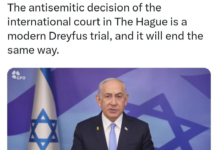![]() Abdel Bari Atwan is the editor of the Arabic news website Raialyoum
Abdel Bari Atwan is the editor of the Arabic news website Raialyoum
Veteran Arab journalist Abdel Bari Atwan says all the indications are that the Syrian/Russian/Iranian alliance will take Aleppo and Idlib in what could be a decisive phase of the Syrian war.
I don’t believe that the Russian strategic analyst Vladimir Labekhin was exaggerating when he described the battles raging in Aleppo now as similar to the Battle of Stalingrad which changed the fate of World War II and led to the collapse of the German army.
The battle of Aleppo will determine the future of Syria and the Arab region as a whole because it’s a matter of life or death for the warring parties and defeat means the beginning of the end, if not the total collapse, of the losers. And that’s why military forces are building up on all fronts.
Syrian army troops, backed by intense Russian air cover, have made great progress in the city and its countryside, and are closing in on the city of Idlib. They have cut the armed opposition supply lines on the Castello Road, which they have closed with the help of the Kurdish Democratic forces which control three-quarters of Manbej city and have closed most of the Syrian-Turkish border crossings.
The Syrian/Iranian alliance, which also includes the elite forces of Hezbollah, has put all its weight into this battle, and wants it to be resolved in its favor. Meanwhile, the Syrian armed opposition forces and factions led by Jabhat al Sham (previously Jabhat al Nusra) hopes to break the siege on its fighters and recover strategic locations seized by the Syrian Arab army.
A secret Russian/American understanding has given the green light to the Syrian Army to bring Aleppo under its control again and to eliminate the armed opposition groups there, as is evident through the US’s silence on the issue and US Secretary of State John Kerry’s appeal to the Syrian and Russian parties to exercise restraint.
Subscribe to our newsletter and stay updated on the latest news and updates from around the Muslim world!
 They have succeeded in confining these factions and organizations in one area in the northwest of Syria, ie Aleppo and Idlib, and plan to eliminate them completely and this is what is happening now through ground advances and intensive aerial bombardments.
They have succeeded in confining these factions and organizations in one area in the northwest of Syria, ie Aleppo and Idlib, and plan to eliminate them completely and this is what is happening now through ground advances and intensive aerial bombardments.
As for Turkey (which considered Aleppo a red line), they are preoccupied with dealing with the failed military coup there and have reconciled themselves with the new Russian policy in Syria. The shooting down by Turkey of a Russian plane near the Syrian border last November led to a major shift in the Turkish position in the Syrian file, after Russian President Vladimir Putin put harsh conditions on a reconciliation with his Turkish counterpart Recep Tayyip Erdogan. And the latter did not find any other option than acceptance.
It wasn’t coincidental that Mr. Ramzi Izz al-Din, the Assistant to the UN envoy Staffan de Mistura, who visited Damascus a few days ago and met with Walid al-Moallem, the Syrian Foreign Minister, set September 1 as the date for the resumption of the Geneva negotiations between the Syrian government and opposition delegations. This is a message to the Russian/Iranian/Syrian alliance that they have four weeks to put an end to the opposition forces in Aleppo.
August 1 was supposed to be the start of the transitional phase in Syria, with a duration of six months to begin parliamentary and presidential elections, and to prepare a new constitution within 18 months. But there is no indication that this will happen in the foreseeable future.
The Syrian armed opposition bet on America, Europe, the Gulf states and Turkey to win the battle of Aleppo and to bring down the regime in Damascus, but this was not a winning bet. These countries are standing by for the moment while the battle of Aleppo rages, and all the Gulf states are doing is shouting on their TV programs.

An interview with Ashton Carter, the US Defense Secretary, about preparations to open a “southern Syrian front” against Assad with the help of Jordan may be a recognition of the coming loss of Aleppo and Idlib. But it will be difficult to revive this front, which is the main gateway to the capital of Damascus (only 90 kilometers away), because this means direct Jordanian involvement and perhaps the dragging of Israel into the Syrian war too.
The current Aleppo battle is by any standards the mother of all battles, and there are indications that the balance is tipping in favour of the Syrian/Russian/Iranian alliance, with the secret blessing and support of America. And this is probably what the words of the Walid al Muallem mean when he said “resilience is the main option for the people and the leadership in Syria and the signs of victory have become close.”
Is his optimism well-placed? Field developments in the coming days and weeks will answer this question.
This article is an abridged version of an article that was posted on Raialyoum and has been translated from Arabic.




















